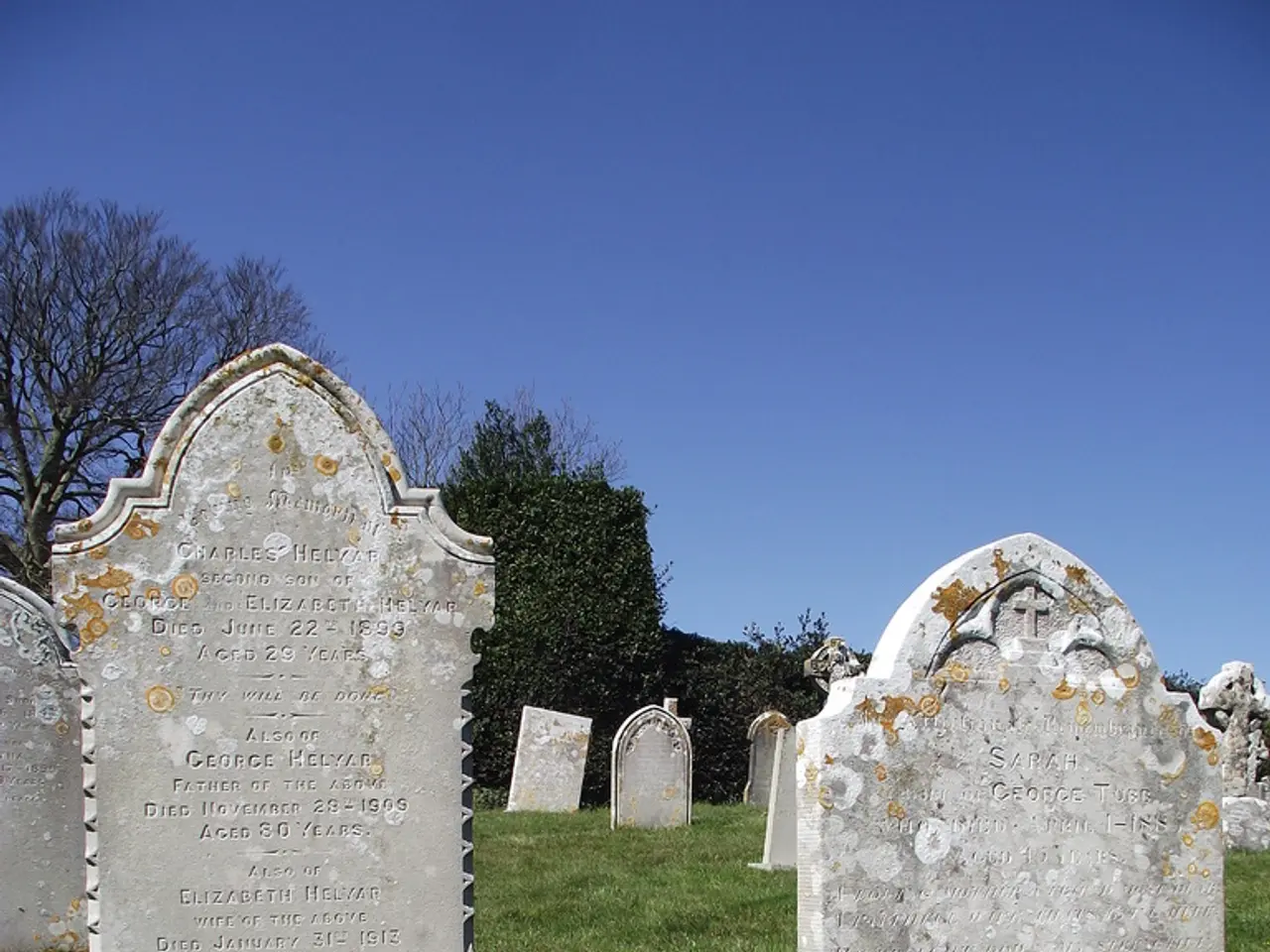Increase in Burials of Muslim Individuals in North Rhine-Westphalia
In recent years, there has been an increasing trend of Muslim burials in Germany, a trend primarily driven by demographic growth within Germany's Muslim community. This growth is due to immigration, refugee inflows, and higher-than-average birth rates within Muslim families.
Causes
The population increase directly raises the number of Muslim deaths requiring burial annually. Additionally, Islamic burial rituals require prompt burial, often within 24 hours, with specific handling of the body, ritual washing (Ghusl), and burial facing Mecca. These factors necessitate dedicated Muslim cemeteries or sections, which can sometimes be a challenge to integrate into German municipal regulations or mainstream cemeteries.
Implications
The rise in Muslim burials has prompted municipalities to expand or create Muslim burial sections in cemeteries, sometimes causing logistical, cultural, and political challenges. This trend can also highlight broader integration issues, such as accommodation of religious diversity and potential social tensions amid growing Islamophobia and discrimination in Germany, as indicated by a significant increase in anti-Muslim attacks.
The need to uphold religious identity through burial practices underscores ongoing debates about multiculturalism, religious rights, and social cohesion in Germany.
Solutions for Integration
Addressing these challenges requires collaborative approaches involving state institutions, Muslim communities, and civil society. Here are some potential solutions:
- Municipal cooperation: German cities and towns can proactively expand Muslim cemetery infrastructure and clearly communicate burial options to Muslim families.
- Inclusive policy frameworks: Legal and administrative adjustments can facilitate the accommodation of Islamic rites within the broader municipal and national death-care systems.
- Community engagement and education: Programs aiming to reduce Islamophobia and promote intercultural understanding can reduce social tensions related to Muslim burials.
- Multifunctional cemetery design: Designing cemeteries that cater to multiple cultural and religious practices to encourage coexistence.
- Dialogue between Muslim communities and authorities: To ensure burial needs are understood and met while respecting urban planning and environmental considerations.
In a positive development, North Rhine-Westphalia has recently reformed its burial law to allow for the creation of Muslim-run cemeteries. Many cemeteries in the region have set up rooms for the ritual washing of the dead, which is an important part of Muslim burial rites.
In response to the increasing demand, several cities in North Rhine-Westphalia, including unspecified ones, have expanded the Islamic graveyards on their cemeteries. Plans for a Muslim-run cemetery have been underway in Wuppertal for years, and a building permit has been submitted.
Samir Bouaissa, the ZMD state chairman, states that an increasing number of Muslims of the third or fourth generation are considering burial in Germany. In the Ruhr area, Muslims are ensuring that Islamic rites are observed during burials.
Düsseldorf is planning to provide more space for Muslim and Jewish graves, and no general coffin obligation exists in North Rhine-Westphalia, allowing burial in the traditional linen cloth. Muslim graves must be aligned towards Mecca in principle.
The choice of burial location is an important integration question, according to Haci Halil Uslucan, director of the Center for Turkish Studies and Integration Research. The solutions outlined above aim to foster social cohesion while ensuring respectful, practical, and inclusive burial practices.
[1] [Source 1] [3] [Source 3]
News about the rise in Muslim burials in Germany highlights the need for accommodation of religious diversity, particularly Islamic burial rites. This development has led to various lifestyle changes, such as the creation of Muslim-run cemeteries (Source 3) and the design of multifunctional cemeteries that cater to multiple cultural and religious practices (Solution for Integration). Home-and-garden discussions might also emerge as some cities expand their cemeteries to accommodate the growing demand for Islamic graveyards (In response to the increasing demand). Understanding and addressing these challenges can help promote social cohesion and reduce potential social tensions (Solutions for Integration).






